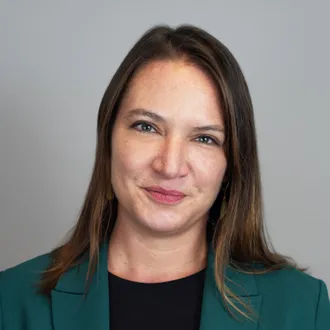A Letter to the Field: Leading with Purpose in Challenging Times

To all of you fighting the good fight every day on behalf of patients and families,
We are working—and living—in challenging times. Our organizations are belt-tightening. Our services are badly needed by patients and referrers, yet palliative care programs struggle for resources. Our teams, and even many of our families, are divided by the news of the day. And the health care landscape feels unstable and unpredictable.
How will our leaders respond to health policy changes? Will momentum toward our health equity goals slow or even reverse? Will cuts to Medicaid funding leave our highest-need patients without a safety net? Will we be able to offer our patients the resources we know they need?
In our roles as palliative care leaders, most of these things are not in our control. But our commitment to quality care for patients is in our control.
"In our roles as palliative care leaders, most of these things are not in our control. But our commitment to quality care for patients is in our control."
I am proud to be part of the palliative care community, first and foremost, because I believe passionately in our clinical mission. I am also proud to be part of a field that has demonstrated remarkable activism and tenacity since its inception.
With precious few exceptions, in our field’s history, there have been no requirements for access to palliative care, and no benefit to reliably cover program costs. Yet despite major structural obstacles, what started as a fringe movement has become a subspecialty available in most U.S. hospitals, and in homes and clinics across the country. Some of the best and brightest clinical trainees join our ranks every year—or enter the field mid-career to recapture their sense of mission and patient connection. Last year, CAPC published its Serious Illness Scorecard to celebrate the enormous infrastructure, education, and clinical reach that field has achieved in a few short decades.
Palliative care has achieved widespread adoption through determination, strategic leadership, and an unwavering commitment to our patients. We will keep our eyes on the prize. That means doing everything we can to safeguard care quality for patients, and professional well-being for our teams.
"We will keep our eyes on the prize. That means doing everything we can to safeguard care quality for patients, and professional well-being for our teams."
For palliative care leaders, the strategies to meet this moment will sound familiar:
- Prioritizing relationships. Do your leaders see you as part of “the solution”? Are your referrers your advocates? Do you produce and measure outcomes that are meaningful to your leadership and partners?
- Savvy financial management. Have you done the unglamorous work of auditing your billing practices to make sure you are optimizing appropriate reimbursement? Will your business plan make for a good meeting with your finance team? Have you developed relationships with local philanthropies or met with your organization’s development office to learn about recruiting donors?
- Managing scope. We can’t compromise on quality. Our patients’ experiences and their trust in us depend on it. What is the highest and best use of your team’s services? Our capacity determines how much we can do, and our use of resources needs to be strategic and meet the needs of our organizations.
- Leaning into community. During times of stress, we’re at risk of isolating ourselves because of busyness or overwhelm. But the palliative care community is generous in spirit, innovative, and compassionate—and that is a strength whether your program is going gangbusters or you’re feeling on the ropes. Call into Virtual Office Hours, come to the National Seminar, and reach out to your mentors and your mentees.
We are good at this. These are the skills that have brought palliative care services to millions of patients and families, and they will stand us in good stead now.
If, like me, you have a personality that would rather sprint than put one foot in front of the other, uncertain times are especially frustrating. They might require going back to first principles instead of breaking new ground. But I would encourage you to listen to the words of the pioneers of our field, who faced barriers that now—because they were successful—are hard to comprehend. These leaders delivered their message again and again and fought for what we have now: a field and a movement that has brought comfort and a sense of control to so many patients and families.
When the larger health care system is threatened, we in palliative care aren’t immune. But we have a responsibility to our patients, and we have an inspiring community and history to draw strength from. We will rise to the occasion and meet today’s challenges because compassion and commitment define us.
"We will rise to the occasion and meet today’s challenges because compassion and commitment define us."

Be the first to read articles from the field (and beyond), access new resources, and register for upcoming events.
